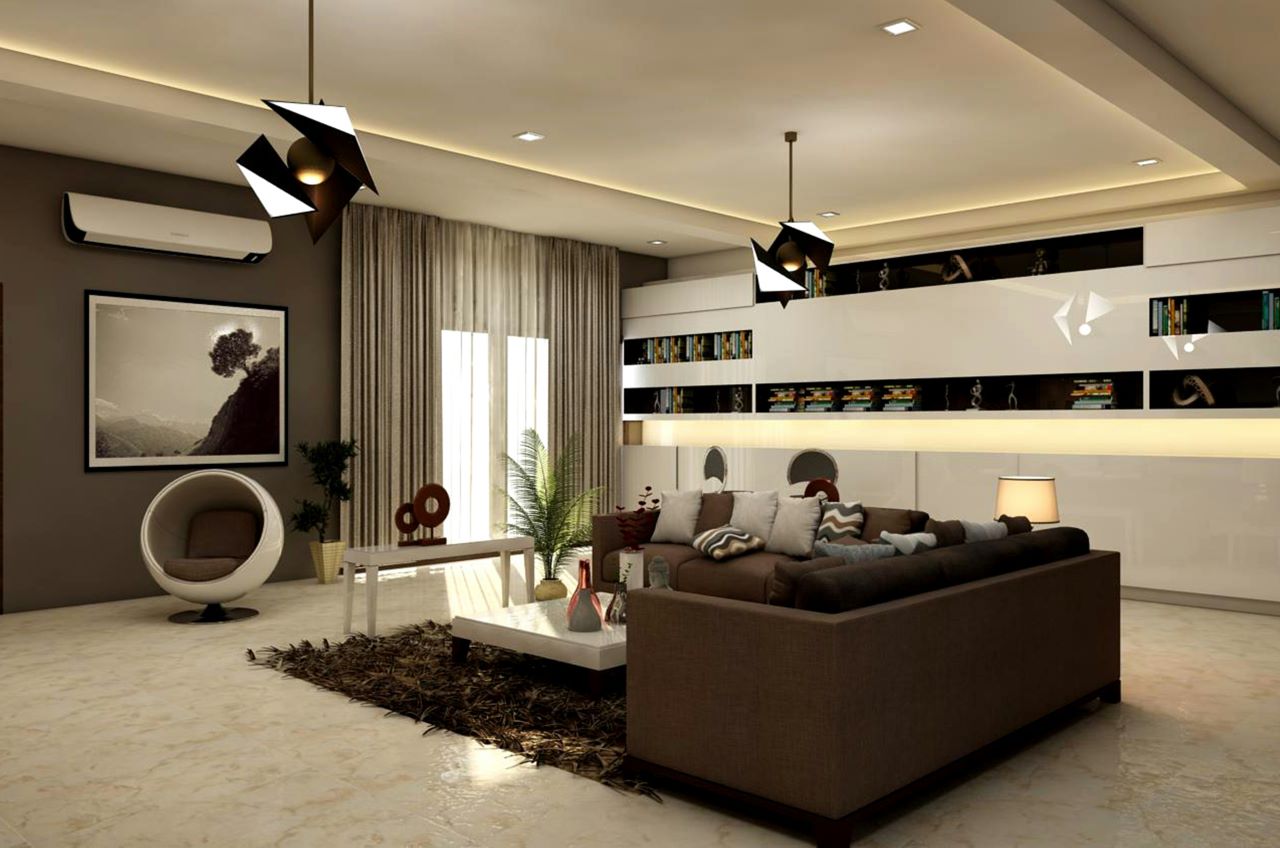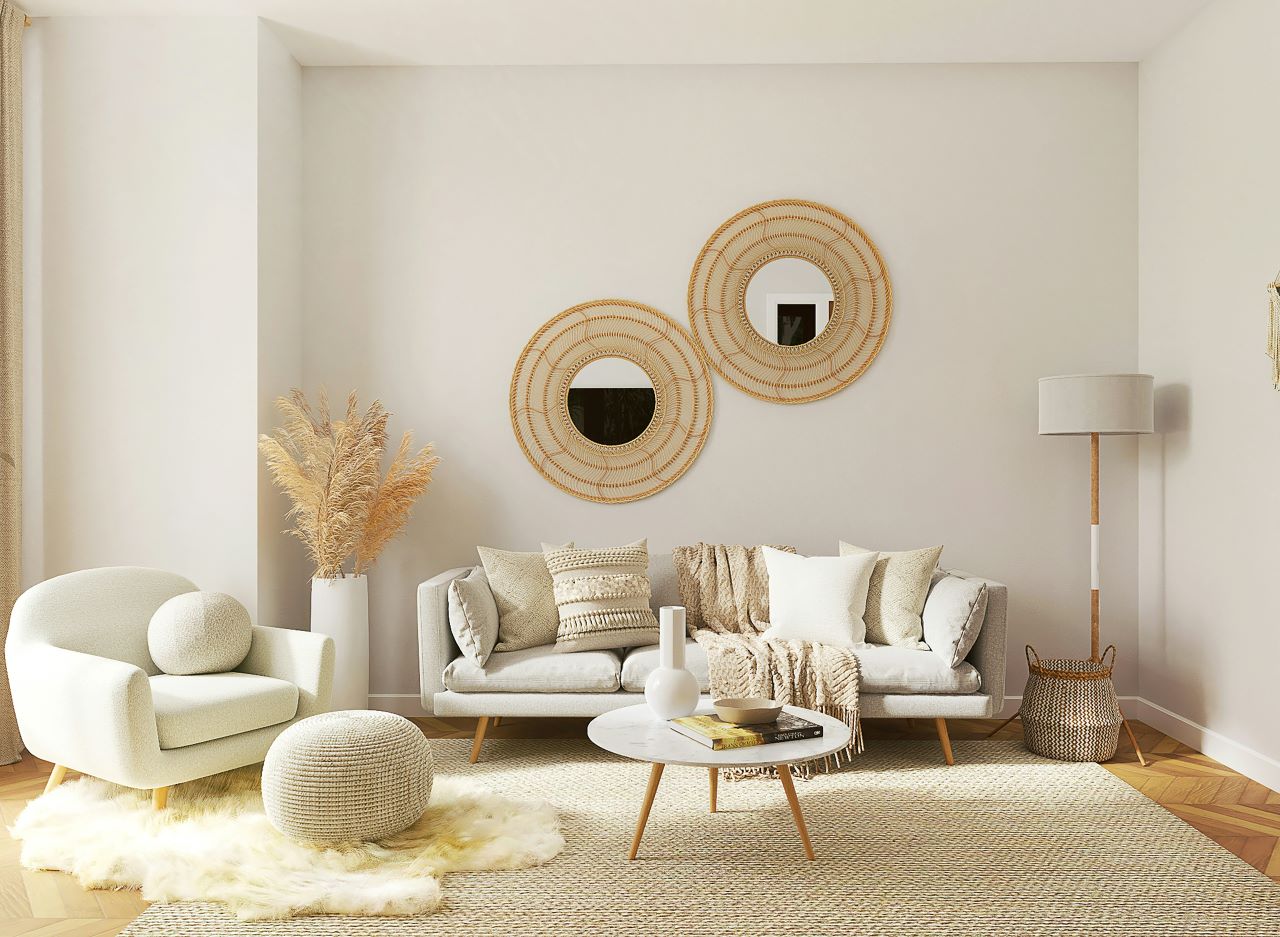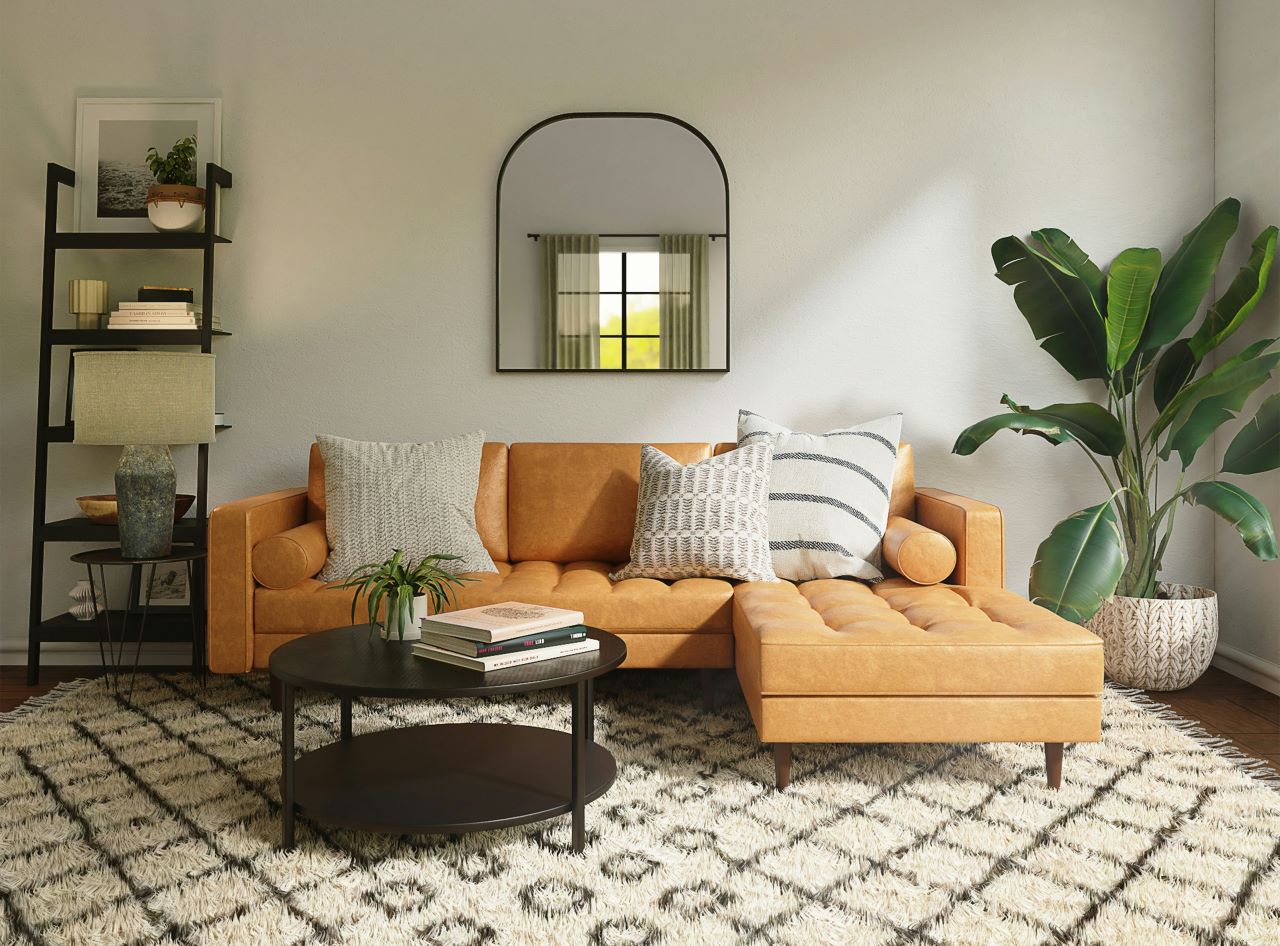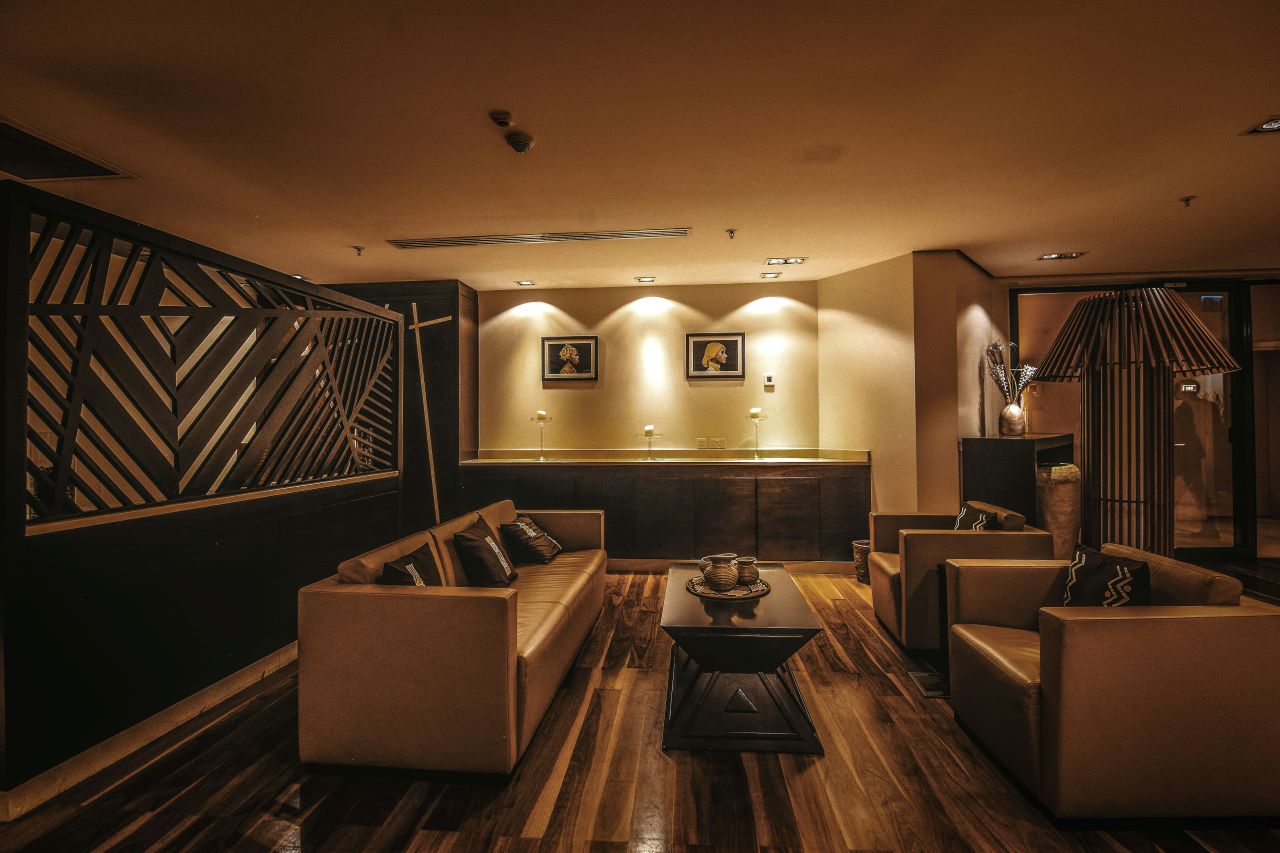When it comes to your living room, you want a space that effortlessly combines functionality with style. After all, it’s where relaxation, entertainment, and socialization come together.
Crafting the perfect living room layout requires thoughtful consideration and a keen eye for design.
It requires more than just arranging furniture; it’s about creating a space that reflects your lifestyle and personality
Here are some valuable tips and tricks to guide you through the process of designing a functional and stylish living room layout.
Tips for Creating a Stylish and Practical Living Room
- Opt for multipurpose furniture pieces to maximize functionality without compromising style.
- Choose a cohesive color palette and stick to it throughout the room for a unified look.
- Incorporate storage solutions that are both practical and visually appealing to reduce clutter and enhance organization.
- Select decorative accents, such as rugs, throw pillows, and artwork, that add personality and charm to the space.
- Invest in quality lighting fixtures that provide both ambient and task lighting to meet various needs.
- Arrange furniture to create designated conversation areas that promote interaction and relaxation.
- Use mirrors strategically to reflect light and create the illusion of more space.
- Balance different textures and materials, such as wood, metal, and fabric, to add visual interest and depth to the room.
- Consider the scale of furniture and decor items to ensure they fit proportionally within the space.
- Lastly, personalize the room with meaningful accessories and personal touches that reflect your unique style and interests.

Define Your Purpose
Before diving into the design process, take a moment to consider how you’ll be using your living room.
Will it be a cozy retreat for family movie nights, a sophisticated space for entertaining guests, or a multifunctional area that serves a variety of purposes?
Understanding the primary function of the room will help you make informed decisions about layout, furniture selection, and decor.
Consider Traffic Flow
Think about how people will move through the space and arrange your furniture accordingly.
Keep pathways clear and avoid placing furniture in a way that obstructs the natural flow of movement.
By ensuring easy access to seating areas and other key features of the room, you’ll create a more comfortable and inviting environment for everyone.

Choose Appropriate Furniture
When selecting furniture for your living room, prioritize pieces that are both stylish and practical.
Consider the scale of your space and choose furniture that fits comfortably without overwhelming the room.
Look for versatile pieces that can serve multiple functions, such as a sofa bed for accommodating overnight guests or a coffee table with built-in storage for keeping clutter at bay.
Create Conversation Zones
Divide your living room into distinct conversation zones to encourage interaction and intimacy.
Arrange seating in clusters that face each other to facilitate easy conversation and connection.
Mix and match different types of seating, such as sofas, armchairs, and ottomans, to create a dynamic and inviting layout that caters to the needs of your family and guests.
Balance Proportions
Achieving visual balance is key to creating a stylish living room layout.
Avoid overcrowding the space with oversized furniture or filling every inch with decorative accents. Instead, aim for a harmonious blend of scale and proportion throughout the room.
Consider the proportions of each piece of furniture and how they relate to one another to create a cohesive and balanced look.
Prioritize Comfort

While style is important, comfort should always be a top priority in your living room design.
Choose furniture and accessories that are as comfortable as they are stylish, ensuring that everyone feels relaxed and at ease in the space.
Incorporate soft textiles, such as plush rugs, cozy throws, and oversized cushions, to add warmth and comfort to your living room decor.
Utilize Vertical Space
Maximize storage and display space by making the most of your living room’s vertical dimensions.
Install floating shelves or wall-mounted cabinets to showcase decorative items and keep clutter off the floor.
Consider incorporating tall bookcases or floor-to-ceiling curtains to draw the eye upward and create a sense of height and spaciousness in the room.
Layer Lighting

Lighting plays a crucial role in setting the mood and ambiance of your living room.
Create a layered lighting scheme that includes a mix of ambient, task, and accent lighting to accommodate different activities and moods.
Incorporate overhead fixtures, table lamps, floor lamps, and wall sconces to provide both functionality and style, allowing you to adjust the lighting to suit any occasion.
Types of Lighting for Your Living Room
| Lighting Type | Description |
|---|---|
| Ambient Lighting | Provides overall illumination to the room, often through ceiling fixtures or recessed lights. |
| Task Lighting | Directs focused light onto specific areas for activities like reading or working. |
| Accent Lighting | Highlights architectural features, artwork, or decorative elements to add visual interest. |
| Natural Lighting | Utilizes natural sunlight through windows or skylights to illuminate the space. |
| Decorative Lighting | Adds aesthetic appeal and serves as a decorative element in the room, such as chandeliers or pendant lights. |
Infuse Personal Style
Make your living room truly your own by infusing it with your personal style and taste.
Choose decor elements, such as artwork, accessories, and textiles, that reflect your personality and interests.
Experiment with colors, patterns, and textures to add visual interest and create a space that feels uniquely yours.
Embrace Flexibility
Finally, embrace flexibility in your living room layout to accommodate changing needs and preferences over time.
Choose furniture and decor that can be easily rearranged or replaced to adapt to your evolving lifestyle.
Invest in versatile pieces that can serve multiple functions and be repurposed as needed, ensuring that your living room remains functional and stylish for years to come.
Frequently Asked Questions (FAQs)
What are some tips for achieving a stylish living room layout?
To achieve a stylish living room layout, focus on balance and proportion. Avoid overcrowding the space with oversized furniture or too many decorative accents.
Incorporate a mix of textures, colors, and patterns to add visual interest while maintaining cohesion in the design.
How can I maximize storage in my living room without sacrificing style?
Utilize vertical space by installing floating shelves or wall-mounted cabinets for displaying decorative items and storing essentials.
Choose furniture pieces with built-in storage, such as coffee tables with drawers or bookcases with concealed compartments. Opt for stylish storage solutions that complement the overall aesthetic of the room.
What lighting options work best for a functional and stylish living room?
A layered lighting scheme incorporating ambient, task, and accent lighting is ideal for a functional and stylish living room.
Use overhead fixtures for general illumination, task lighting such as table lamps or floor lamps for reading or working, and accent lighting to highlight architectural features or artwork.
Conclusion
- Making your living room both practical and stylish can be fun and rewarding.
- By following the tips and tricks I’ve talked about, you can create a living room that’s perfect for you.
- Remember, it’s important to pick furniture that’s comfy and useful.
- Think about how people will move around the room, and try not to crowd it with too much stuff.
- And don’t forget to add your own personal touches to make it feel like home.
- Ultimately, your living room should be a reflection of your lifestyle and personality—a place where you can relax, entertain guests, and create cherished memories with loved ones.
- With a little planning and creativity, you can create a space that’s both functional and beautiful, and that you’ll love spending time in.